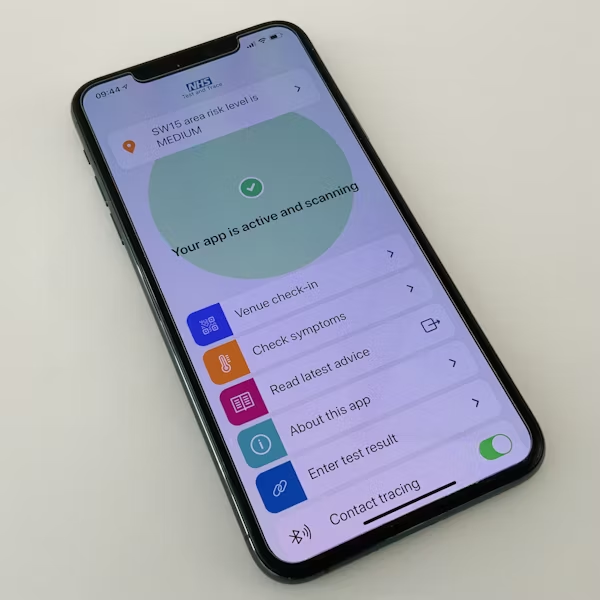So, you’ve heard about affiliate marketing and you’re wondering: “Can I really make money by promoting other people’s products?” The short answer? Absolutely. The long answer? You need to know how to do it the right way.
Affiliate marketing is one of the most popular ways to make passive income online. It doesn’t require a product of your own, and you don’t need to be a tech genius. If you’re willing to learn and put in the work, affiliate marketing can be your gateway into the world of online business.
This beginner-friendly guide will show you how to get started with affiliate marketing step-by-step—even if you’re starting with zero experience and zero budget.
1. What Is Affiliate Marketing?
Affiliate marketing is a performance-based business model where you earn a commission for promoting someone else’s product or service. You share a unique affiliate link, and when someone makes a purchase through that link, you get paid.
You’re essentially a middleman between a product and a buyer—without handling the product, customer service, or shipping.
2. How Affiliate Marketing Works
Here’s a quick breakdown of how it all comes together:
- You join an affiliate program.
- You get a special tracking link for a product or service.
- You share the link via a blog, YouTube video, social media post, or email.
- Someone clicks your link and buys something.
- You earn a commission.
The key is promoting the right product to the right audience in the right way.
3. Why Affiliate Marketing Is Great for Beginners
There are a lot of online business models out there—dropshipping, freelancing, selling digital products. So why start with affiliate marketing?
- No product creation required
- Low startup cost (or zero)
- Work from anywhere
- Scalable income potential
- Earn while you sleep (passive income)
If you’re consistent and provide value, affiliate marketing can turn into a full-time income source.
4. Choosing a Profitable Niche
Before you promote anything, you need to pick a niche—a specific topic or market. A good niche is one that’s:
- Profitable: Are people spending money in this space?
- Evergreen: Will it still be around in 5 years?
- Aligned with your interests: You’ll create content around this topic, so don’t pick something you hate.
- Solves a problem: People pay for solutions.
Popular affiliate niches include:
- Health and fitness
- Personal finance and investing
- Online business
- Beauty and skincare
- Parenting and relationships
- Tech and gadgets
- Pets
5. Finding the Right Affiliate Programs
Not all affiliate programs are created equal. Look for:
- Reputable products/services
- High commission rates (10%–50% or more)
- Recurring commissions (subscriptions = steady income)
- Reliable tracking and payouts
Popular Affiliate Networks:
Also, check if your favorite products or tools have their own affiliate programs (many do!).
6. How to Create Content That Converts
You won’t make money just by dropping links. You need to give people a reason to click and buy.
Types of High-Converting Content:
- Product reviews
- Comparison articles (e.g., “Product A vs. Product B”)
- How-to guides
- Listicles (e.g., “Top 10 Tools for Bloggers”)
- Video tutorials
- Case studies
Focus on helping, not selling. The more value you offer, the more likely people will trust your recommendations.
7. Free Platforms to Promote Affiliate Links
No website? No problem. You can start promoting affiliate links for free on:
- YouTube – Create videos reviewing or demonstrating products
- Medium – Write blog-style articles with affiliate links
- Pinterest – Pin blog posts or product pages (check their policy)
- Facebook Groups or Pages – Share helpful content + affiliate suggestions
- Instagram – Use Linktree or Beacons to share multiple links
- Reddit & Quora – Provide helpful answers with links (don’t spam!)
Still, starting a blog or website eventually gives you more control and long-term potential.
8. SEO Basics for Affiliate Marketing
Search Engine Optimization (SEO) helps your content rank in Google and bring in free traffic.
Quick SEO Tips:
- Use keywords people are searching for (e.g., “best budget headphones 2025”)
- Write in-depth, helpful articles
- Include your keyword in the title, headings, and URL
- Use internal and external links
- Optimize your images and site speed
Free SEO tools: Ubersuggest, Google Keyword Planner, Moz
9. Using Social Media to Drive Traffic
Social platforms can explode your affiliate sales—if you use them wisely.
- Post regularly and engage with your audience
- Use trending hashtags
- Collaborate with other creators or influencers
- Don’t just push products—tell stories, solve problems, entertain!
TikTok and Instagram Reels are powerful tools for affiliate marketers in 2025.
10. Email Marketing for Affiliates
Even with all the shiny new platforms, email is still king when it comes to conversions.
- Build a free email list using tools like MailerLite or Mailchimp
- Offer a lead magnet (eBook, checklist, or free guide)
- Send regular newsletters with helpful tips and occasional product promotions
- Always include your affiliate links strategically
11. Avoiding Common Affiliate Marketing Mistakes
- Promoting products you don’t believe in
- Spamming links without value
- Ignoring SEO and content quality
- Focusing only on commissions, not helping
- Not disclosing your affiliate relationship (it’s legally required!)
Be transparent, be honest, be helpful—and the sales will come.
12. Understanding FTC Rules and Disclosures
In the U.S. (and many other countries), you’re legally required to disclose that you may earn commissions from affiliate links.
Examples of compliant disclosure:
- “This post contains affiliate links. I may earn a small commission at no extra cost to you.”
- “As an Amazon Associate, I earn from qualifying purchases.”
Always be upfront with your audience—it builds trust.
13. Tracking Your Results
You can’t improve what you don’t track.
Use affiliate dashboards and tools like:
- Google Analytics – See where your traffic is coming from
- Bitly – Shorten and track clicks on links
- Pretty Links (WordPress) – Manage and track affiliate URLs
Know what’s working—and do more of it.
14. How to Scale Your Affiliate Income
Once you’ve made a few sales, here’s how to grow:
- Create more content targeting similar products
- Start a blog or YouTube channel to drive traffic long-term
- Invest in tools (email marketing, SEO plugins, premium themes)
- Build an audience that trusts your voice
- Automate using funnels and email sequences
Affiliate marketing is a long game—but the payoff can be big.
15. Final Thoughts
Starting affiliate marketing as a beginner might feel overwhelming—but don’t overthink it. The best way to learn is by doing. Choose a niche, find products you love, create valuable content, and start sharing.
Remember: You’re not here to sell—you’re here to help. Solve problems, offer value, and the commissions will follow.
FAQs
Q1: How much money can I make with affiliate marketing?
It depends on your niche, audience size, and content quality. Some beginners earn $100/month. Others scale to $10,000+/month.
Q2: Do I need a website to do affiliate marketing?
No, but having a website helps build trust and long-term traffic. You can also start with social media or YouTube.
Q3: Is affiliate marketing passive income?
Yes, but it takes upfront work. Once your content ranks or your email funnel is built, it can generate income passively.
Q4: Can I do affiliate marketing from any country?
Absolutely! Most affiliate networks are global. Just make sure the products you promote are available in your target market.
Q5: Is affiliate marketing legit or a scam?
It’s 100% legit. Big companies like Amazon, Walmart, and Nike all have affiliate programs. But beware of fake “get rich quick” schemes disguised as affiliate training.




